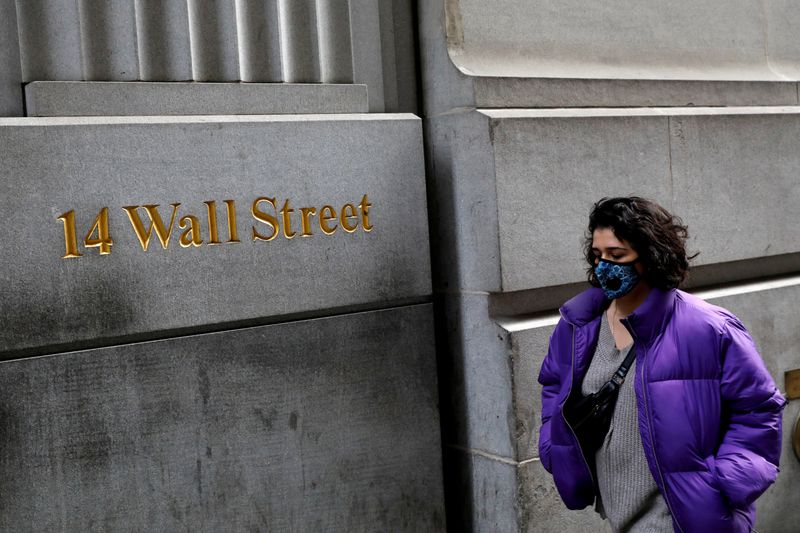By Geoffrey Smith
Investing.com -- The Organization of Petroleum Exporting Countries is set to meet with other major producers to discuss output levels after cutting its forecasts for oil demand. More details are emerging about the scale of bank losses from the Archegos blowup, while equity and bond markets are treading water ahead of U.S. President Joe Biden's infrastructure speech. European Central Bank President Christine Lagarde throws down a gauntlet for markets and Deliveroo slumps on its highly anticipated market debut. Here's what you need to know in financial markets on Wednesday, March 31th.
1. OPEC+ meets after cutting demand forecasts
The Organization of Petroleum Exporting Countries meets with other major producers (notably Russia) to set output quotas for May. The Joint Ministerial Monitoring Committee meeting is set to start at 10:30 AM ET (1430 GMT).
Expectations have solidified around a consensus of no change in output levels, despite the impatience of Russia and others to raise output in response to the rally in prices since the back end of 2020.
That’s because the latest surge in Covid-19 that has hit Europe and India particularly hard has delayed the expected rebound in global demand: OPEC’s joint technical committee has revised down its estimates for global demand growth to 5.6 million barrels a day, from 5.9 million previously, according to wire reports. Demand for the second quarter is now forecast at 1 million b/d lower.
2. Mitsubishi flags Archegos loss; Deutsche escapes; S&P cuts Credit Suisse outlook
More details emerged about the scale of losses incurred by the banks that funded Bill Hwang’s ill-fated stock bets. UFJ Mitsubishi said it expected to lose around $300 million, while Deutsche Bank (DE:DBKGn) said it had reduced its exposure to Archegos in time to avoid major losses and that its remaining exposure was ‘immaterial’.
On Tuesday, Standard & Poor’s had cut the outlook on Credit Suisse’s debt to ‘negative’ from ‘stable’ due to concerns about its risk management shortcomings.
Credit Suisse (NYSE:CS) still hasn’t quantified what it expects to be a “substantial” hit to its earnings from the fiasco. JPMorgan analysts estimate the total hit to Archegos’ lenders to be as much as $10 billion.
3. Stocks, bonds tread water ahead of Biden speech
U.S. stock markets are treading water ahead of President Joe Biden’s big speech later outlining his infrastructure spending plans. Biden is expected to talk of some $2 trillion in spending, a number that implies even heavier borrowing by the U.S. Treasury and other levels of government.
By 6:30 AM ET (1030 GMT), Dow Jones futures were down 23 points, or less than 0.1%, while S&P 500 futures were flat and Nasdaq 100 futures were up 0.2%.
The yield on the 10-year Treasury ticked up slightly to 1.73%, after rising as high as 1.78% on Tuesday.
Stocks likely to be in focus later include Lululemon (NASDAQ:LULU), whose earnings after the bell on Tuesday exceeded expectations, and Walgreens Boots Alliance (NASDAQ:WBA), which reports early. Chipmaker Micron (NASDAQ:MU) reports after the close. Also in focus are H&M ADR's (OTC:HNNMY), after the company swung to a loss in the latest quarter and suspended a dividend.
4. Lagarde’s punchy interview may come back to bite her
European Central Bank President Christine Lagarde invited markets to test its resolve to keep monetary conditions loose, ahead of what is likely to be a quarter of deceptively high inflation rates.
Lagarde told Bloomberg in an interview that markets “can test us as much as they want.”
While that’s the sort of remark that can often come back to bite central bankers, bond vigilantes politely declined the offer in early trading in Europe, keeping Eurozone government bond yields and spreads largely unchanged.
The ECB has already said it will accelerate its bond buying in the second quarter, a period when year-on-year inflation rates are likely to spike because of the collapse in oil prices a year earlier. The headline CPI rate for the Eurozone rose to 1.3% in March, from 0.9% in February, according to data released later by Eurostat.
5. Deliveroo slumps on market debut
Europe’s biggest IPO of the year so far got off to a disastrous start, as shares in Amazon-backed Deliveroo plunged as much as 30% on their market debut, amid concerns that its business model could be made unviable by labor market regulation in its biggest markets, a well as displeasure at its two-class share structure.
The IPO valued the company at some $10.5 billon. It comes only a couple of weeks after Uber (NYSE:UBER) gave up fighting a Supreme Court ruling in the U.K. that forced it to offer its drivers vacation and sick days, and to ensure that they received the national minimum wage. Deliveroo’s cycle couriers so far have no such guarantees.
There have also been concerns that it lacks the same reach in local markets as rivals Uber Eats and Just Eat Takeaway.
